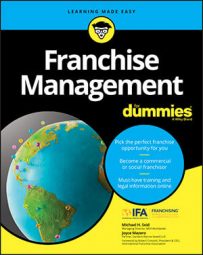Franchisee advisory councils
A franchisee advisory council is a committee established by the franchisor and composed of franchisee representatives. It may also have representatives from the franchisor-operated units. Its purpose is purely advisory.Here are some of the ways a franchisor can use the advisory council:
- To present new ideas and get feedback from franchisees before rolling them out system-wide
- To solicit suggestions on improvements to products, services, and system support
- To review marketing and advertising strategies
- To discuss new technology
- To discuss new suppliers
- To assist the franchisor in looking at conflicts in the system
Often, a franchisor will establish criteria on who may sit on the council. If a franchisee is in default, for example, they’re usually not invited to the big table. No one should really want advice or input from someone who is not in compliance with system standards — no matter how many locations they may own and operate.
Councils often spin off other committees, such as an advertising committee that provides input into advertising decisions, a buying committee that looks at cooperatives or other joint efforts for purchasing products and services for the system, and even a technology committee to look at new software or robotics to reduce labor and improve unit performance.
When you’re speaking to the franchisees of a system, ask about their views on the advisory council. What does it do in their system? Do they get reports on the council’s activities? Get the name of the head of the council or the local representative and give them a call. You want to understand whether the council is well run and empowered by the franchisor to have a meaningful role in the system.
Franchisee associations
Unlike franchisee advisory councils, franchisee associations are usually independent organizations, made up of dues-paying franchisees that come together when no franchisee advisory council exists or if the council is not viewed as adequately promoting their interests. They may function like a council, but franchisee associations set their own rules, membership requirements, and agendas. Membership dues usually fund them, whereas the franchisor more often than not picks up the tab for its franchise advisory council.Historically, many franchisee associations were started because of a systemic crisis. For example, the franchisor may have been on the verge of bankruptcy or introduced a radical new product, service, or standard into the system without adequate testing, a change in management may have occurred, or the franchisor may have dramatically revised the terms of its new and renewal franchise agreements. Franchisee associations have frequently also been formed on the verge of system-wide litigation.
Today, while many franchisors are leery and resist franchisee associations, other franchisors have recognized that an independent association is not a bad idea and may make a positive contribution to the system, as long as its leadership acts responsibly and listens to the legitimate concerns of its constituency. Many of these franchisors have cautiously developed procedures to include associations as part of the process to maintain and grow their systems. In some systems, the franchisee associations are granted specific rights under the franchise agreements.
For a franchise system to have both a franchisee advisory council and an independent franchisee association is not unheard of. Moreover, the lines between a franchisee association and a franchisee advisory council aren’t always clear-cut. Some groups have elements of both types of organizations.Franchisee associations can be beneficial to both the franchisor and the franchisees. It takes work on both sides to make the relationship work. The relationship between associations and franchisors works best when it is built on achieving results valued by both the franchisor and the association. Some lawyers — by training — can often change the dynamics ideal for a positive relationship.
There are many successful franchisee associations. The Coalition of Franchisee Associations (the CFA) is an association of franchisee associations with the mission “to bring franchisee associations together to share and exchange ideas.” It may be a good source of information if you’re interested in forming or joining a franchisee association.

